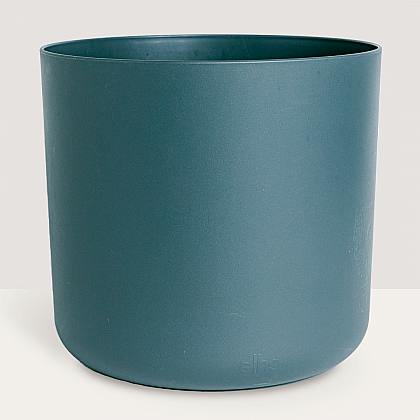Discover Nature's Best Defense Against Mosquitoes
Discover Nature's Best Defense Against Mosquitoes is a comprehensive and informative article that delves into the world of natural remedies for mosquito control.

Discover Nature's Best Defense Against Mosquitoes is a comprehensive and informative article that delves into the world of natural remedies for mosquito control.
This professional guide explores the characteristics and benefits of various plants, herbs, and essential oils that effectively repel mosquitoes.
With a focus on environmentally friendly and safe pest control methods, this article equips readers with the knowledge needed to create mosquito-repellent gardens, select appropriate essential oils, and implement effective strategies to protect themselves and their surroundings.
Say goodbye to bothersome mosquito infestations with nature's powerful defense.
Plants and Herbs for Mosquito Repellent
Plants and herbs offer a natural and effective defense against mosquitoes. Using plants and herbs as natural mosquito repellents has many benefits and proven effectiveness.
Certain plants emit aromas that mosquitoes dislike, such as basil and bee balm. Cedar is another plant that repels mosquitoes and offers additional benefits. Citronella, commonly found in natural mosquito repellents, is known for its mosquito-repelling properties. Garlic, lavender, lemon balm, lemon thyme, lemongrass, marigold, mint, mugwort, rue, sage, and wormwood are all plants that effectively repel mosquitoes.
Essential oils derived from plants like citronella, peppermint, eucalyptus, lemongrass, and tea tree also possess mosquito-repelling properties. By exploring the science behind these essential oils, we can understand their effectiveness as natural mosquito repellents.
Using plants and herbs as natural mosquito repellents provides a safe and environmentally friendly alternative to chemical-based repellents.
Essential Oils for Mosquito Repellent
Continuing the exploration of natural mosquito repellents, essential oils derived from certain plants offer an effective defense against these pests.
Using essential oils as mosquito repellent provides numerous benefits. Firstly, they are a natural alternative to chemical-based repellents, reducing exposure to potentially harmful substances.
Essential oils also emit pleasant scents, making them an enjoyable option for repelling mosquitoes. Additionally, they can be easily incorporated into do-it-yourself (DIY) recipes for making natural mosquito repellents at home.
Some popular essential oils for mosquito repellent include citronella oil, peppermint oil, eucalyptus oil, lemongrass oil, and tea tree oil. These oils can be mixed with carrier oils or other ingredients to create effective and personalized repellents.
Outdoor Plants for Mosquito Repellent
Outdoor plants are effective in repelling mosquitoes, providing a natural and aesthetically pleasing way to keep these pests at bay. Incorporating mosquito-repellent plants into your outdoor living space not only helps create a mosquito-free environment but also adds beauty to your garden. Here are three plants that can help repel mosquitoes:
Lavender: This plant emits a fragrance that repels mosquitoes while adding a pleasant aroma to your outdoor space.
Lemon balm: With its citronellal content, lemon balm acts as a natural mosquito repellent and is a gentle alternative to citronella.
Orlando Planter - XXL/29cmAn ecological planter46.00 €Marigold: The strong scent produced by marigolds deters mosquitoes effectively when grown near other plants.
By strategically placing these plants in your garden, you can create a mosquito-free outdoor living space.
For more gardening tips on attracting beneficial insects and creating a mosquito-free outdoor living space, continue reading the article.
Indoor Plants for Mosquito Repellent
To create a mosquito-free indoor environment, incorporating specific plants can be an effective and aesthetically pleasing solution. indoor plants that repel mosquitoes provide several benefits.
Firstly, they release natural repellents such as citronella, lemon, and mint fragrances that mosquitoes dislike, thus reducing their presence. Secondly, these plants improve indoor air quality by releasing oxygen and absorbing pollutants, contributing to a healthier living space.
When choosing indoor plants for mosquito repellent, consider plants such as aloe vera, spider plant, snake plant, English ivy, and peppermint. These plants are easy to care for and require minimal maintenance. They thrive in indoor environments and can be placed in pots or hanging baskets. Regular watering, sufficient sunlight, and occasional pruning are essential for their growth.
Other Methods for Mosquito Control
To supplement the use of indoor plants for mosquito repellent, there are additional methods for controlling mosquitoes that can be employed in order to create a comprehensive defense against these pesky insects.
Here are three effective strategies for mosquito control:
Natural remedies for mosquito control without using plants or essential oils: There are various natural ingredients that can be used to repel mosquitoes, such as vinegar, garlic, and lemon juice. These household items can be combined to create DIY mosquito repellent sprays or used directly to deter mosquitoes from biting.
DIY mosquito repellent recipes using common household ingredients: By mixing ingredients like witch hazel, apple cider vinegar, and essential oils such as lavender or eucalyptus, you can create your own mosquito repellents. These homemade solutions are not only effective but also cost-effective and environmentally friendly.
Utilizing mosquito traps: Mosquito traps are designed to attract and capture mosquitoes, reducing their population and preventing them from bothering you. Some traps use UV light or carbon dioxide to lure mosquitoes, while others utilize sticky surfaces or electric grids to eliminate them.
In conclusion, the article 'Discover Nature's Best Defense Against Mosquitoes' provides valuable information on various plants, herbs, and essential oils that can effectively repel mosquitoes.
It emphasizes the importance of utilizing natural remedies for mosquito control, promoting a safer and more environmentally friendly approach.
By implementing the strategies and suggestions outlined in the article, readers can create mosquito-repellent gardens, select appropriate essential oils, and protect themselves and their surroundings from these bothersome insects.


